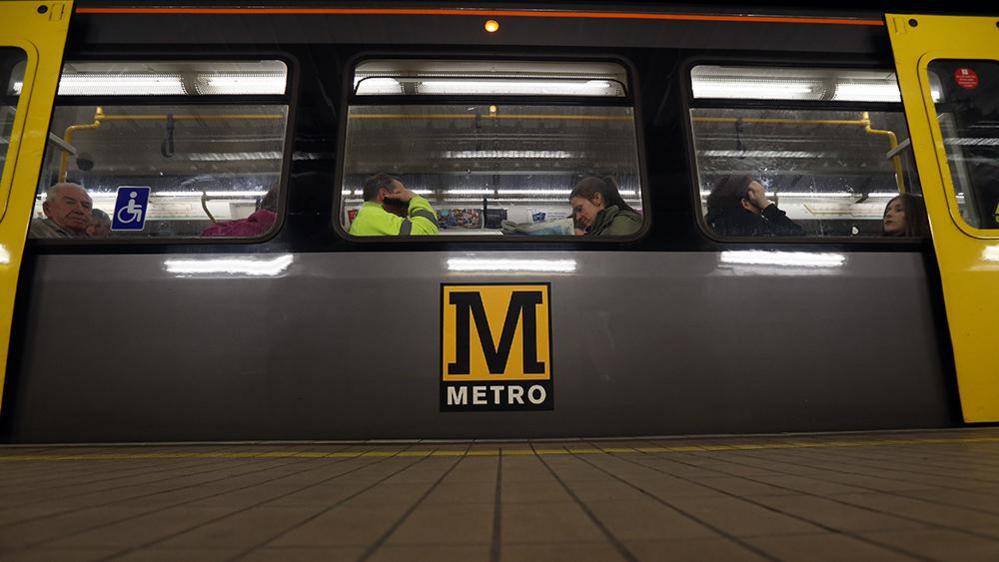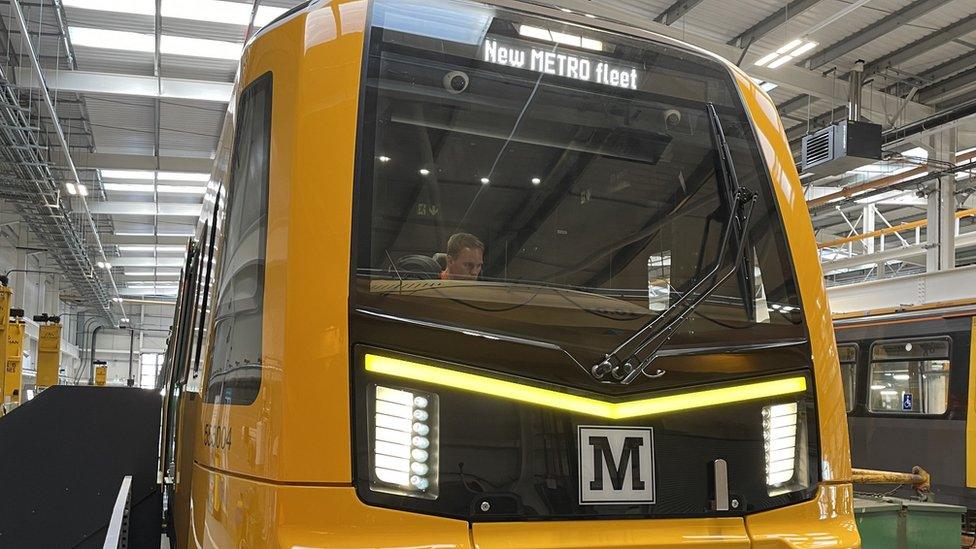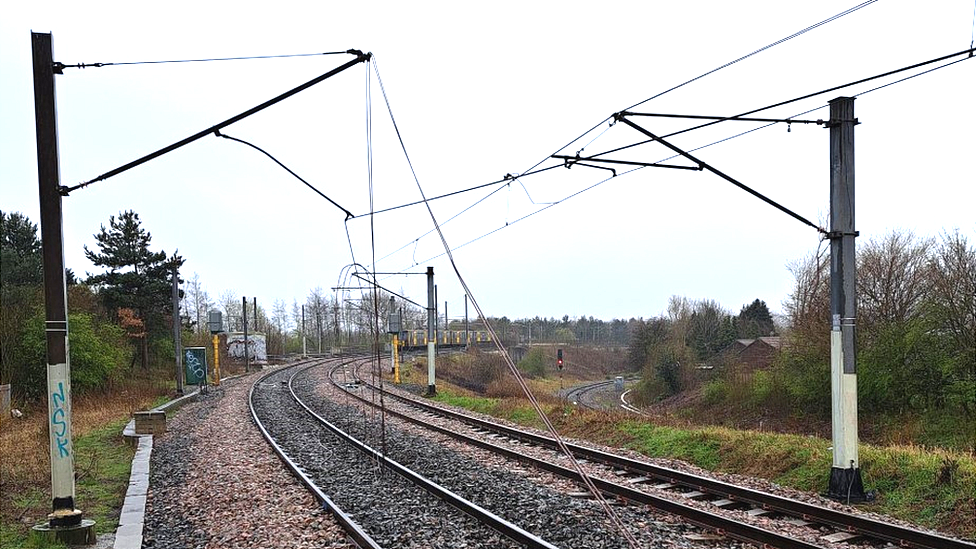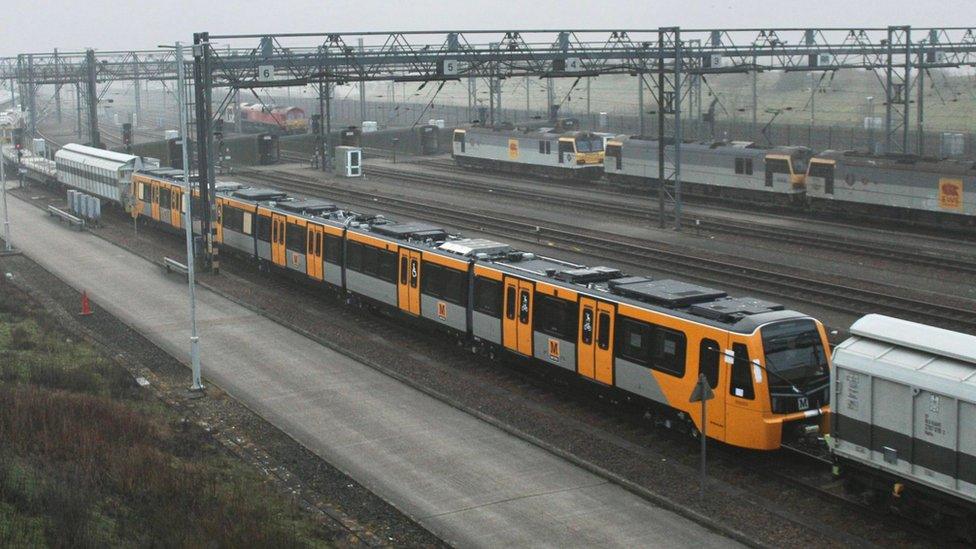Metro maintenance firm told to improve

Stadler maintains the Tyne and Wear Metro’s train fleet
At a glance
Metro operator Nexus tells train maintenance company to improve
The network has seen problems with reliability, delays and cancellations
Stadler has accepted the service is not as it should be
- Published
The company in charge of maintaining the Tyne and Wear Metro’s troubled train fleet has been ordered to improve.
Metro operator Nexus served formal notice on Stadler to deal with reliability issues after a number of delays and cancellations in recent months.
Nexus managing director Martin Kearney said services had “not been at an acceptable level for some time”.
Stadler said work was under way to deal with the situation.
Fire, flooding, cable theft, industrial action, anti-social behaviour, staff sickness, storm damage and an overhead line collapse have affected the service in recent months, frustrating passengers.
The Metro's timetable was recently cut due to a lack of available working trains, with extra services running from Pelaw to Monkseaton at peak times axed.
Meanwhile, the fare on some tickets was increased last weekend.
Speaking to the North East Joint Transport Committee (JTC) on Thursday, Mr Kearney admitted the most recent performance figures showed almost 30% of trains did not turn up on time.
He told councillors he had written to Stadler in February to demand an improvement and had now served a formal remedial notice on the Swiss manufacturing giant.
No quick fix
Stadler’s UK finance director, Iain Jardine, told councillors: “We accept that the performance has not been where it needs to be and where we would expect it to be.”
Work was already under way to address the availability problems, including recruitment of extra staff, he said.
Stadler won the contract to build a £362m new fleet of Metro trains in 2020 and is also now responsible for the upkeep of the current, 43-year-old carriages at their Gosforth depot.
Three of 46 new trains had been delivered but would not be in service until the end of the year as they requireed local testing and driver training first, the Local Democracy Reporting Service said.
Mr Kearney warned the increasingly unreliable older trains would be needed "for quite some time yet" and there would be no swift "massive improvement” given the difficulties of transitioning from one fleet to another.
Follow BBC North East & Cumbria on Twitter, external, Facebook, external and Instagram, external. Send your story ideas to northeastandcumbria@bbc.co.uk.
Related topics
More on Metro
- Published1 April 2023

- Published30 March 2023

- Published24 February 2023
